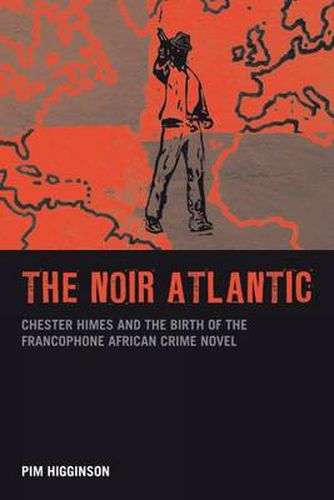Readings Newsletter
Become a Readings Member to make your shopping experience even easier.
Sign in or sign up for free!
You’re not far away from qualifying for FREE standard shipping within Australia
You’ve qualified for FREE standard shipping within Australia
The cart is loading…






The Noir Atlantic follows the influence of African American author Chester Himes on Francophone African crime fiction. In 1953, Himes emigrated to Paris; he struggled there, just as he had in the United States. In 1957, his luck changed: the famous French Serie noire brought out the first installment of his Harlem crime series, La reine des pommes. Suddenly, he was a household name in France. Later, he would also have a significant influence on Francophone African writers; for them, Himes’s blend of absurdist humor and violence offered an alternative to a high literary paradigm implanted during the colonial era. Likewise, his heterogeneous identity as American, black, and a writer of French bestsellers modeled an escape from the centripetal pull of the Metropole. Starting with Abasse Ndione’s depictions of Senegal’s marijuana-smoking subculture in La Vie en spirale (1982) and ending with Mongo Beti’s 2001 Branle-bas en noir et blanc, set in Yaounde, Cameroon, Francophone African crime fiction rejected French criteria of literary success; it embraced a new postcolonial aesthetic that emphasized entertaining the reader while making a living. The Noir Atlantic demonstrates why turning to what this study calls a frivolous literary mode represented a profound shift in perspective that anticipated more recent developments such as litterature monde.
$9.00 standard shipping within Australia
FREE standard shipping within Australia for orders over $100.00
Express & International shipping calculated at checkout
The Noir Atlantic follows the influence of African American author Chester Himes on Francophone African crime fiction. In 1953, Himes emigrated to Paris; he struggled there, just as he had in the United States. In 1957, his luck changed: the famous French Serie noire brought out the first installment of his Harlem crime series, La reine des pommes. Suddenly, he was a household name in France. Later, he would also have a significant influence on Francophone African writers; for them, Himes’s blend of absurdist humor and violence offered an alternative to a high literary paradigm implanted during the colonial era. Likewise, his heterogeneous identity as American, black, and a writer of French bestsellers modeled an escape from the centripetal pull of the Metropole. Starting with Abasse Ndione’s depictions of Senegal’s marijuana-smoking subculture in La Vie en spirale (1982) and ending with Mongo Beti’s 2001 Branle-bas en noir et blanc, set in Yaounde, Cameroon, Francophone African crime fiction rejected French criteria of literary success; it embraced a new postcolonial aesthetic that emphasized entertaining the reader while making a living. The Noir Atlantic demonstrates why turning to what this study calls a frivolous literary mode represented a profound shift in perspective that anticipated more recent developments such as litterature monde.